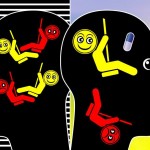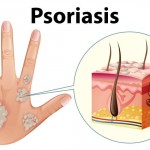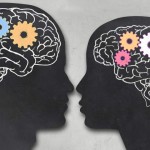Insomnia
Insomnia or sleeplessness, is a disorder characterized by an inability to fall asleep or to stay asleep as long as desired. Insomnia is generally seen as both a sign and a symptom that can accompany several sleep, medical, and psychiatric disorders characterized by a persistent difficulty falling asleep. Insomnia is typically followed by functional impairment while awake. Insomnia can occur at any age, but it is particularly common in the elderly.
Types of insomnia: Insomnia can be classified as acute, or chronic.
1.Acute insomnia: It is the inability to sleep well for a period of less than a month. Insomnia is present when there is difficulty initiating or maintaining sleep or when the sleep that is obtained is non-refreshing or of poor quality. These type of insomnia occurs despite there is adequate opportunity and circumstances for sleep and they must result in problems with daytime function. Acute insomnia is also known as short term insomnia or stress related insomnia.
2.Chronic insomnia: It lasts for more than a month. It can be caused by another disorder, or it can be a primary disorder. People with high levels of stress hormones or shifts in the levels of cytokines are more likely to have chronic insomnia. Its effects can vary according to its causes. They might include muscular fatigue, hallucinations, and/or mental fatigue. Those people that live with this disorder have hallucinations and tends to see things as if they are happening in slow motion. Chronic insomnia can cause double vision.
Symptoms
Waking up early in the morning and not being able to get back to sleep
Waking up several times in the middle of the night
Lying awake for a long time at night
Feeling tired and not refreshed by sleep
Being irritable
Causes
Stressful events: If somebody experiences insomnia due to any stressful event. Like worrying about work, money or health, a loved one becoming ill or dying, and even noise and light are all causes of Stress and are likely to keep you awake at night.
Psychiatric problems: Underlying mental health problems can affect sleeping patterns.
They include:
Mood disorders, such as depression or bipolar disorder
Anxiety disorders, such as generalized anxiety, panic disorder or post-traumatic stress disorder
Psychotic disorders, such as schizophrenia
Conditions: Insomnia can be caused by underlying:
Heart disease
Respiratory disease, such as chronic obstructive pulmonary disease or asthma
Neurological disease, such as Alzheimer's or Parkinson's disease
Hormonal problems, such as an overactive thyroid
Joint or muscle problems, such as arthritis
Sleep disorders, such as restless legs syndrome, narcolepsy or sleep apnoea.
Drinking too much caffeine (contained in tea, coffee, energy drinks) can also affect sleeping patterns.
Medications: Some medicines that are available over the counter can cause insomnia.
These include:
Antidepressants
Epilepsy medicine
Medication for high blood pressure (hypertension), such as beta-blockers
Hormone replacement therapy
Non-steroidal anti-inflammatory drugs (NSAIDs)
Some medicines that are used to treat asthma, such as salbutamol, salmeterol and theophylline
Diagnosis
Sleep history: Doctor may ask the patient about his sleep history.
Medical history: Doctor may ask about his medical conditions:
Have any new or ongoing health problems
Have painful injuries or health conditions, such as arthritis
Take any medicines, either over-the-counter or prescription
Have symptoms or a history of depression, anxiety, or psychosis
Are coping with highly stressful life events, such as divorce or death
This information is only for understanding. If one has such symptoms, he/she should consult doctor for diagnosis and treatment.
Treatments
Cognitive and behavioral treatments: Cognitive behavioral treatments (CBT) aim to change unhelpful thoughts and behaviors that may be contributing to insomnia. CBT is usually recommended if someone had sleep problems for more than four weeks.
It includes:
Stimulus-control therapy- which aims to help associate the bedroom with sleep and establish a consistent sleep/wake pattern
Sleep restriction therapy - The amount of time spent in bed to the actual amount of time spent asleep, creating mild sleep deprivation; sleep time is then increased as your sleeping improves
Relaxation training – This aims to reduce tension or minimize intrusive thoughts that may be interfering with sleep
Paradoxical intention –Try to stay awake and avoid any intention of falling asleep, it's only used if someone have trouble getting to sleep, but not maintaining sleep
Biofeedback – Sensors connected to a machine are placed on the body to measure body’s responses, such as muscle tension and heart rate; the machine produces pictures or sounds to help control breathing and body responses.
This information is only for understanding. If one has such symptoms, he/she should consult doctor for diagnosis and treatment.
References:
Centre of Disease Control and Prevention
U S National Library of Medicine
NHS
National Heart,Lung and Blood Institute









